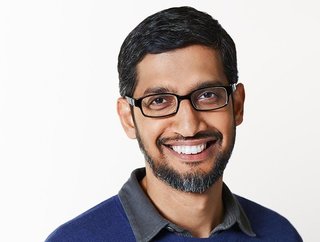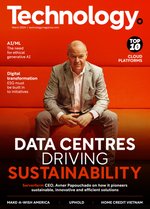Pichai is Living His Tech Dream as Google’s CEO

"I always loved technology growing up," Google CEO Sundar Pichai has said. "I used to read about what was happening in Silicon Valley, and I wanted to be a part of it."
Rarely in the world of technology can a childhood ambition have been fulfilled so completely.
Pichai only joined Google in 2004, and went on to lead the development of Google Toolbar and then Google Chrome, which grew to become the world’s most popular internet browser.
In 2014 he was appointed to lead product and engineering for all of Google’s products and platforms - including popular products such as Search, Maps, Play, Android, Chrome, Gmail and Google Apps (now GSuite).
Following a short stint at the management consulting firm McKinsey, he joined Google in 2004 as Head of Product Management & Development.
His first project was the Google Toolbar, which gave Explorer and Firefox easy access to the Google search engine.
In the following years Pichai’s rise was remarkable. He was directly involved in the development of Chrome (released in 2008) and that same year was named VP Product Development. It was in that role that he began to become a more prominent public figure.
By 2012 he was a SVP, and in 2014 was made the product chief of both Google and the Android smartphone operating system.
Pichai became Google’s CEO in August 2015, and joined the Board of Directors of Alphabet – Google's parent company – in July 2017.
Under his leadership Google has focused firmly on product and services development, all of which are powered by the latest advances in AI.
But it was back in his native India that Pichai first discovered his love of technology. He grew up in Chennai, India and studied engineering at the Indian Institute of Technology. He holds a master's degree from Stanford University.
His father was an electrical engineer at the British multinational GEC, and that paternal influence clearly rubbed off, because Pichai showed an early interest in technology.
After being awarded a scholarship in 1995 to study at Stanford University (engineering and materials science) Pichai remained in the US, and went on to earn an MBA from the Wharton School of the University of Pennsylvania.
On the red-hot topic of AI, Pichai says he sees the technology as “an extraordinary platform shift”, and expects it to “touch pretty much everything – every sector and industry, and every aspect of our lives”.
He adds: “One way to think about AI is it’s no different from how we thought about the PC shift, the Internet shift, the mobile shift.
“But it’s deeper than that. It’s the most profound technology humanity is working on.”
On the broader subject of the World Wide Web Pichai says: “I’ve cared about the Web for a long time, but I think it belongs to no one, and there is inherent value in that.
“And there are aspects of the Web which are stronger than most people realise, but I won’t underestimate the power of AI. As it becomes multimodal, the distinction we feel between text and images and video will blur over time.
“Today, we feel those walls. At Google, we’ve always tried to bridge these things. We try to bring all these forms together.”
******
Make sure you check out the latest edition of Technology Magazine and also sign up to our global conference series - Tech & AI LIVE 2024
******
Technology Magazine is a BizClik brand
- Top 100 Women 2024: Robyn Denholm, Tesla - No. 8AI & Machine Learning
- Top 100 Women 2024: Safra Catz, Oracle - No. 7Digital Transformation
- Advancing AI in Retail with Pick N Pay's Leon Van NiekerkAI & Machine Learning
- OpenText’s Muhi Majzoub: Engineering Platform Growth with AIEnterprise IT







